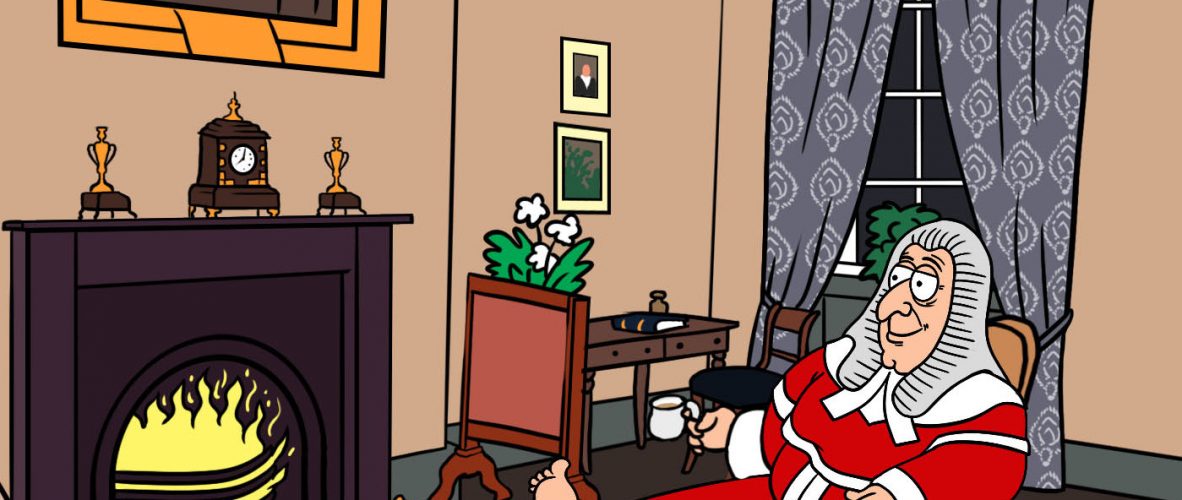after her coronation in 1837? Have a parliamentary meeting? Have tea with all the royal dignitaries? No – she gave her dog, Dash, a bath.

Toys that show transport have always fascinated children. Models of horses and carts gave way to toy trains as the excitement of the railway came to Britain, allowing people, for the first time, to travel away from their homes at any speed. In Presteigne, the railway opened in 1875. Imagine how exciting it would have been to see these huge machines! This tin train could shoot along the floor by a clockwork mechanism.

Mr Venebles, Victorian Chairman of the Magistrates for Radnorshire, says this about trains in the audiotour that takes you around The Judge’s Lodging:
“I was born in 1809, you know, and when I was a young man, there were no railways at all. I used to travel from Radnorshire to college in Cambridge by stagecoach. An eight horse coach, changing at Hereford and Oxford. The Journey back took more than twenty four hours, traveling by day and by night. Nor was it very comfortable, I do assure you, the whole journey was generally performed sitting on a bare board, with no knee apron, or rug. Waterproof coats had not been invented. We young fellows generally traveled as outside passengers, at thruppence a mile, and tried to get the seat next to the driver, to share his leather knee apron. To travel inside cost twice as much, half a servant’s yearly wage for the journey, I suppose. On one occasion, I did travel inside to London. It was exceedingly cold, snowy weather. The coach overturned, and I offered to ride on one of the coach horses for assistance. Being a coach horse, the wretched animal would only trot – five miles trotting on such a beast, bareback, is not over pleasant. Now, by the train, I reach London in less than ten hours for less than a pound. I would scarcely have believed it in my youth.”

In the classroom: